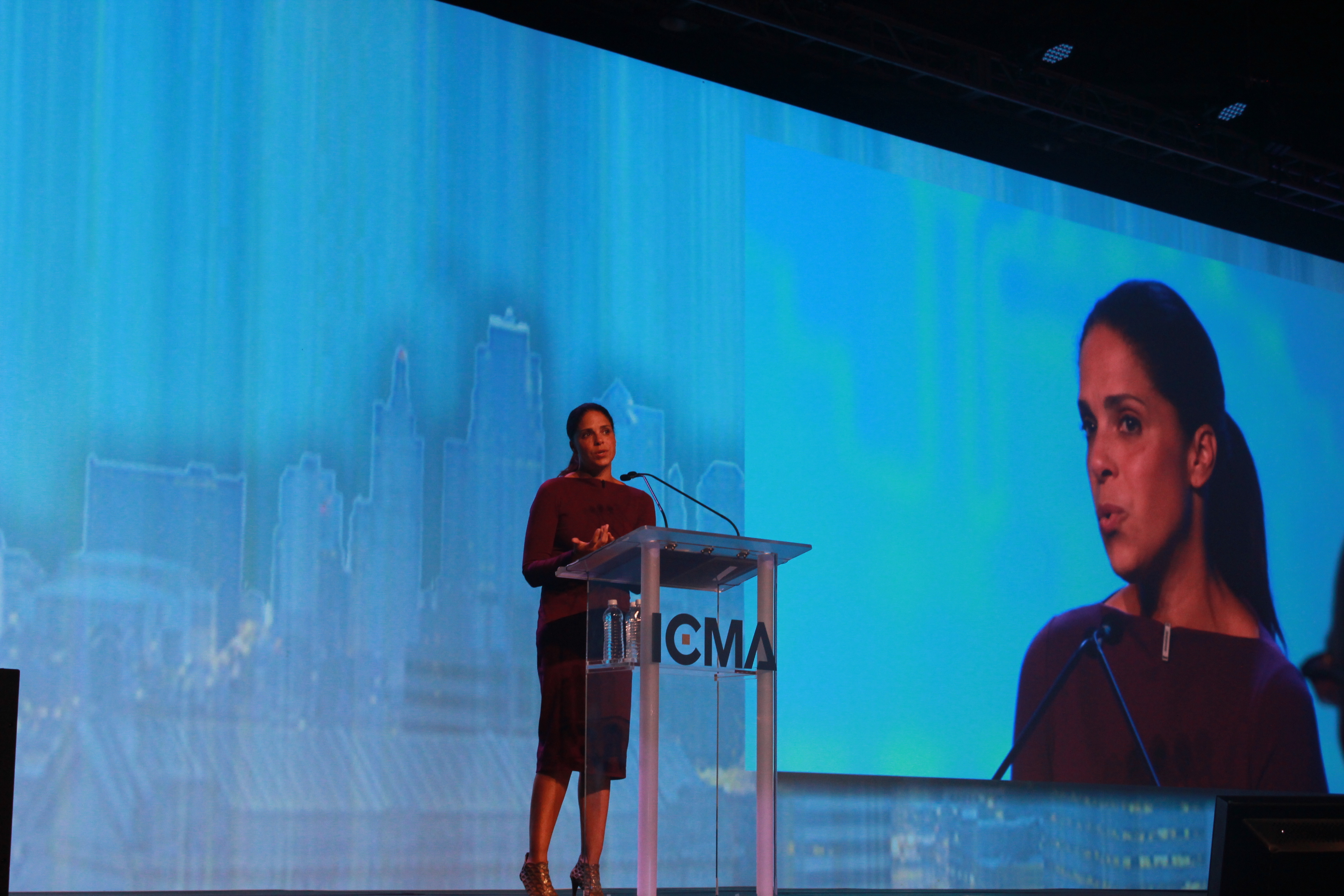
Race, class, and religion are important issues, yet we have difficulty talking about them in a candid way, journalist Soledad O’Brien told attendees at the opening session of the ICMA Annual Conference in Kansas City. She encouraged ICMA members to take a leadership role in helping communities have candid conversations where people can tell the truth as they see it. "We don't want to confront our own biases, and we all have biases," she said. "Leaders can be the conveners of uncomfortable conversations so people can be heard."
Observing that some communities are thriving and others are challenged, O'Brien said that one problem is that we shout and talk past each other, rather than trying to understand each other.
O'Brien drew from her life story to frame the issues. Her parents had to go to the District of Columbia to get married in 1958 because Maryland and several other states had laws forbidding the marriage of individuals from different races. With a black Cuban mother and a white Australian father, Soledad and her five siblings stood out. She recalls that people would spit on them when they walked down the street. Years later, when she asked her mother how she dealt with such behavior, her mother explained, "Oh, lovey, we knew America was better than that."
As a journalist, O'Brien found that unconscious biases shaped decisions regarding which stories would be pursued. While living in Oakland, California, she realized that her colleagues had a very different view of the city than she did. One day her colleagues had to drive through Oakland to get to work in San Francisco. They talked about how scared they were, and how glad they were that they didn’t get carjacked. For O'Brien, that conversation drove home the point that media coverage can be driven by a particular group's view of a particular community. Depending on how the story is framed, people can come across as sympathetic and attractive or not sympathetic at all. The underlying issues behind a news story may be ignored.
"The media will always cover the fires and the dramatic stories," she said, "but they don't stay afterwards." After 10 years in the business, O'Brien wanted to tell stories that were more nuanced but knew it would be difficult. "It's hard to dig out the history of complicated relationships that have developed over decades," she explained.
"The world is changing dramatically and it takes real work to recognize our biases and mitigate them. We have an opportunity to change that with real leadership," she said. "A healthy community means listening to different stories and different versions of the truth," she added.
"The path to leadership is to be unafraid, ask uncomfortable questions, and tell the truth as you feel it. Then we can start to solve the problem," she said.
"At the end of the day, we are all on the same side. We all want good schools, safe streets, and a community where you can tell your story. We can change the narrative when we recognize our biases and chip away at them."
New, Reduced Membership Dues
A new, reduced dues rate is available for CAOs/ACAOs, along with additional discounts for those in smaller communities, has been implemented. Learn more and be sure to join or renew today!
